AdWords Announces Upcoming Changes To Enhanced CPC Bidding
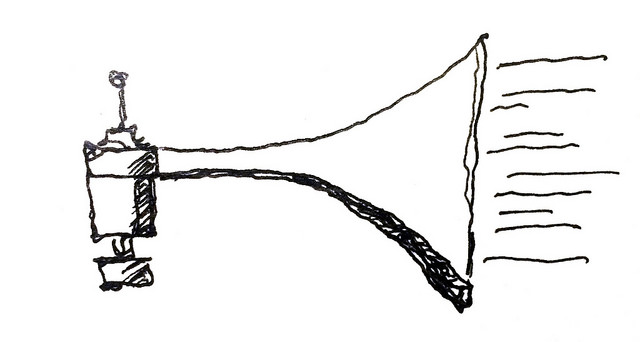
Beginning in early June, AdWords will be rolling out changes to Enhanced CPC bidding (ECPC). You’ve probably been seeing the below notification when logged into the AdWords interface. Keep reading to find out what changes are being implemented and how they could affect account performance.
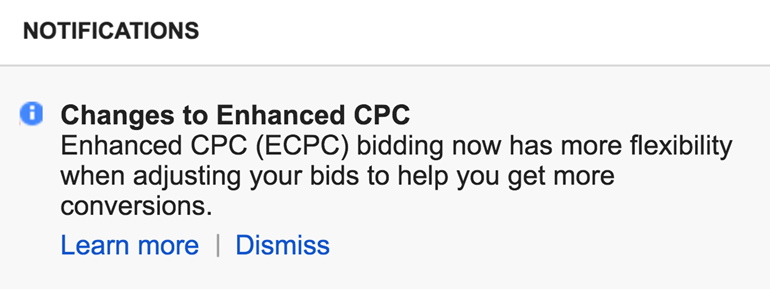
What’s Changing?
Currently, ECPC is an automated bidding strategy that increases your manual bid amounts up to 30% if Google’s algorithm thinks a certain click is more likely to convert. The algorithm takes a user’s device, location, browser, and the time of day into consideration when automatically adjusting bids. ECPC works for Search, Shopping, and Display campaigns. Any manual bid adjustments for device, location, etc. are taken into consideration before ECPC does its magic.
The big change rolling out this June is the removal of the 30% bid increase cap. As stated in the announcement below, Google’s reasoning for the cap removal is to help advertisers increase conversions. While more conversions sound fantastic, advertisers with strict CPC KPIs or low conversion data should be especially careful when using ECPC.
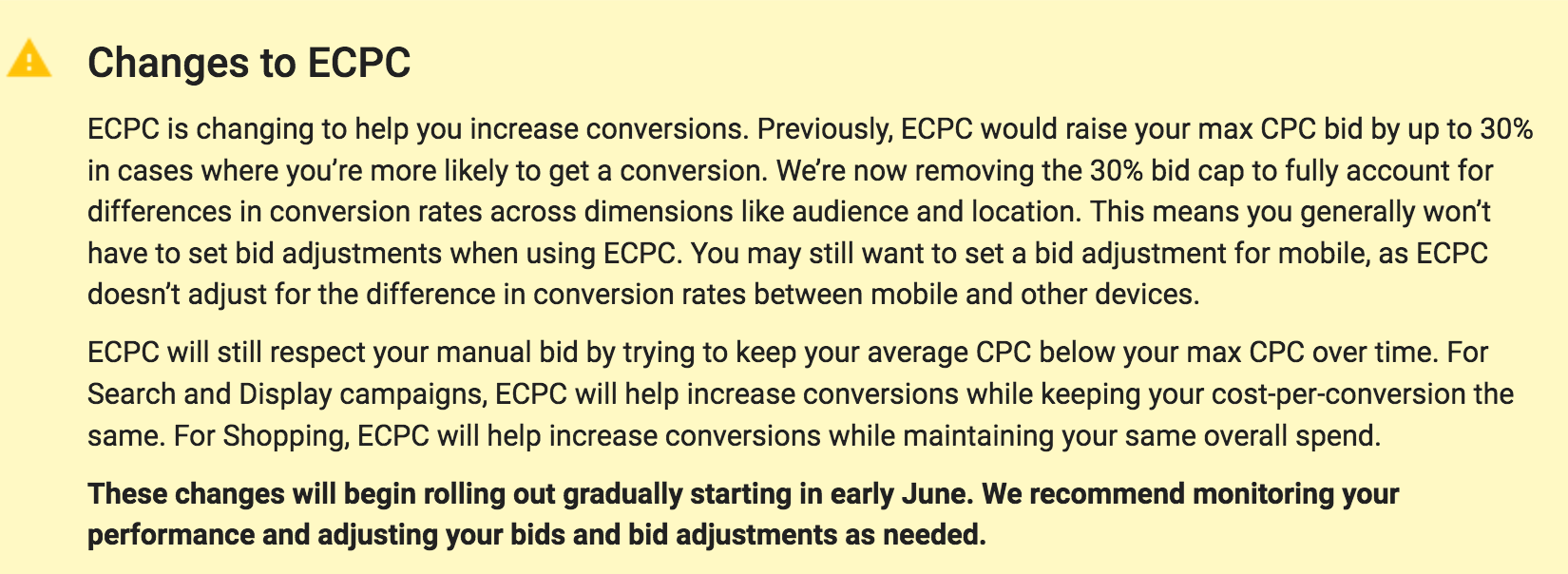
Another aspect of ECPC to keep in mind is the automation does not adjust bids based on device. Even with the 30% cap removal, be sure to use positive and negative device bid modifiers to help optimize ad delivery.
Potential Results
Even though AdWords is removing the 30% increase cap, actual average CPC should be at or below your manual bid “over time.” Hopefully, AdWords will release a more specific explanation here since “over time” could mean a few days or a full month. Again, if you have any specific CPC goals for your campaigns you should turn off ECPC bidding temporarily. If ECPC is working well for you now, I recommend testing ECPC in one campaign for a month to see how this change impacts your average CPC, impression share, and conversion rate.
Other than average CPC, you might also notice a shift in traffic for certain locations or audiences. For example, say a Search campaign has ECPC enabled and generates an average of 300 conversions per month. The AdWords algorithm determines a significant number of converters from this campaign live in Chicago. The algorithm also determines a significant number of converters from this campaign have visited the site previously and are in the All Visitors remarketing list. Assuming the All Visitors remarketing list is a bid only audience target in this campaign, ECPC bidding will increase the manual bid by potentially over 30% for users who are in Chicago and have previously visited the site. This is where the ECPC cap removal could greatly benefit advertisers.
When To Not Use ECPC
Like with Target CPA bidding, AdWords uses historical conversion data when automatically adjusting bids with ECPC. If you do not have accurate conversion tracking set up in your account, it’s better to use manual CPC bidding instead of ECPC. Even if you do have conversion tracking implemented correctly, make sure the campaign for which you are implementing ECPC has at least 30 conversions over the last month to give Google’s algorithm enough data to work with.
Check Your Campaign Settings
Unsure if you’re using Enhanced CPC? Go to the settings tab for the entire account as shown below. You might need to adjust the columns to include bid strategy type.
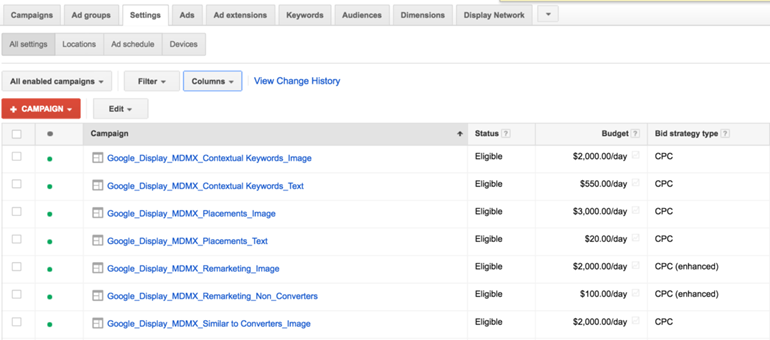
Advertisers should also be careful when creating new campaigns. ECPC is currently the default setting for new Search and Display campaigns. When creating campaigns in the AdWords Editor, ECPC is also the default setting along with Manual CPC. Even before the 30% increase cap is removed, it’s best to launch campaigns using regular Manual CPC bidding and build up conversion volume before enabling ECPC bidding.
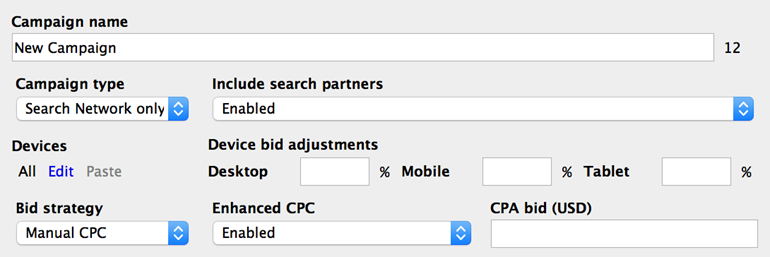
Conclusion
By saying goodbye to the 30% increase cap, AdWords is removing a level of control for advertisers. Depending on how true their statement is that average CPC will align with manual bids, the increase in automation might not be an issue for most campaigns. If you’d like to read the AdWords explanation of this change, visit the AdWords help page on ECPC.



